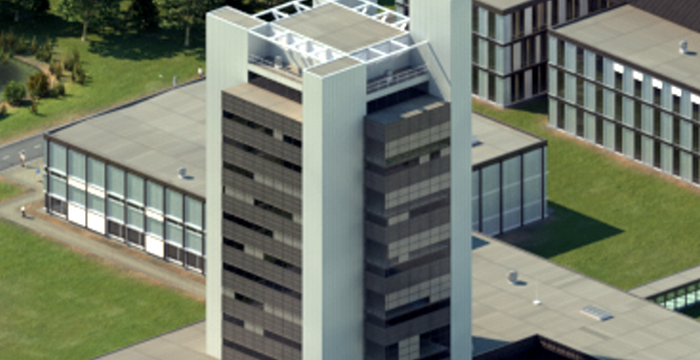Postdoctoral researcher currently working on the Urban Bridge and Quay Wall Innovation project (Urbiquay) from NWO, with a focus on the LiveQuay project. LiveQuay provides an integrated assessment of the safety and performance of bridges and quay walls in a decision-support platform that is interactive and based on values from stakeholders. Currently, I'm focusing on communicating the Risk in Inner-city bridges and quay walls in Amsterdam and The Hague among several stakeholders and government practitioners.
As part of my background:
I recently obtained (2024)a degree of doctor from the Department of Urban and Regional Planning and Geo-Information Management at the University of Twente. I developed my research within the group of PLUS (People, Land and Urban Systems) with the research project: Infrastructuring public spaces in Mexico through social participation using technology as a support system.
Some of my previous studies include:
- Bachelor's degree in urban environmental design. This degree was awarded by the Autonomous University of Puebla in Mexico.
- MSc in process and graphic expressions of architecture and urbanism. This degree was awarded from the University of Guadalajara.
Some of my professional experiences as a practitioner include being part of several private consultancy companies in Mexico and Canada that are related to urban development, public transport, urban design and development, and community planning. I also have experience as a government practitioner in urban planning at the metropolitan level for the city of Puebla in Mexico.
In the Netherlands, I am part of a startup called AMACHAN, which focuses on the creation of surveys for qualitative and quantitative research with a focus on spatial information. www.amachan.io
Expertise
Social Sciences
- Public Space
- Planning
- Mexico
- Social Participation
- Management
- Maintenance
- Research
Computer Science
- Information and Communication Technologies
Organisations
The participatory planning processes and its relation with the inclusive involvement of the people in the city it is a practice that has been left aside by local governments in Latin America; the Information available for urban communities related to urban issues, specially in public spaces is practically non-existent in many Latin American cities and specifically in Mexico.
Only few cases, usually middle-upper class neighborhoods, had the necessary knowledge about the situation in the place where they live, usually solving basic infrastructure problems by their own resources, like maintenance of green areas or the development of communal areas.
But unfortunately, not everyone has the same knowledge about what people can do in their context. This is more predominant in low income or segregated areas of Latin American cities, usually the efforts to improve the infrastructure of a neighborhood are led by the local government, but without the inclusion of the society. The possibility of generate urban knowledge for them is almost made for a few NGO´s trying to show these communities the benefits of better public spaces and how to get them, but still there is a lack of information regarding to the urban spaces and how they can be participants in the process.
Therefore, this research is more focused on the process of developing participatory methodologies that would be providing accurate information through collective mapping data for local urban communities. The gathered information would help to create an open access tool where communities could understand their needs in order to rehabilitate or create public spaces that could meet their needs and also empowering them in order to be more active in their urban situation.
Currently in Latin America and specifically in Mexico, real estate speculation and the expropriation and sale of public lands to private sector, generates the dispossession of properties that should have a public use. The proposed objective at this moment, is to develop a methodological tool that would be able to show why it is important to maintain, conserve, rehabilitate or appropriate public spaces in rural/urban communities through the collective knowledge of the inhabitants and using technological tools. This could be achieved through the use of supporting technologies such as Participatory Geographic Information systems (GIS), participatory methodologies and perhaps the virtual immersion on the project with VR technology for a more dynamic process with communities. The hypothesis is to know if through the use of new participatory technologies and other support systems, the social inclusion in the urban planning process of public spaces could improve the decision making of new infrastructures.
Publications
2024
2023
2022
2020
Research profiles
Some of my previous studies include:
- Bachelor's degree in urban environmental design. This degree was awarded by the Autonomous University of Puebla in Mexico.
- MSc in process and graphic expressions of architecture and urbanism. This degree was awarded from the University of Guadalajara.
- Doctorate degree by the ITC Faculty, in the department of Urban and Regional Planning and Geo-Information Management. Thesis title: Social participation and the role of ICT in the planning, design and maintenance of public spaces. Thesis link
Affiliated study programs
- Public Space Quality Evaluation through the use of ICTs
https://www.itc.nl/research/research-themes/plus/evaluacionespaciopublico/
- Urbiquay - Livequay

In the press
https://www.utoday.nl/PhD-stories/71646/i-like-the-freedom-of-doing-a-phd
News on utwente.nl
- The freedom of doing a PhD
https://www.utoday.nl/PhD-stories/71646/i-like-the-freedom-of-doing-a-phd
- UT Challenge 2023
https://www.utwente.nl/en/news/2023/6/1020647/ut-challenge-2023-the-winners
Address

University of Twente
Horst Complex (building no. 20), room Z228
De Horst 2
7522 LW Enschede
Netherlands
University of Twente
Horst Complex Z228
P.O. Box 217
7500 AE Enschede
Netherlands